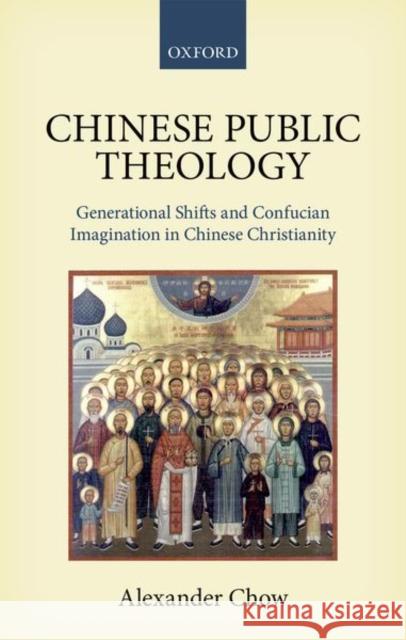Chinese Public Theology: Generational Shifts and Confucian Imagination in Chinese Christianity » książka
Chinese Public Theology: Generational Shifts and Confucian Imagination in Chinese Christianity
ISBN-13: 9780198808695 / Angielski / Twarda / 2018 / 264 str.
It has been widely recognized that Christianity is the fastest growing religion in one of the last communist-run countries of the world: the People's Republic of China. Yet it would be a mistake to describe Chinese Christianity as merely a clandestine faith or, as hoped by the Communist Party of China, a privatized religion. Alexander Chow argues that Christians in mainland China have been constructing a more intentional public theology to engage the Chinese state and society, since the end of the Cultural Revolution (1966-76). Chinese Public Theology recalls the events which have led to this transformation and examines the developments of Christianity across three generations of Chinese intellectuals from the state-sanctioned Protestant church, the secular academy, and the growing urban renaissance in Calvinism. Moreover, Chow shows how each of these generations have provided different theological responses to the same sociopolitical moments of the last three decades.
This study illustrates how a growing understanding of Chinese public theology has been developed through a subconscious intermingling of Christian and Confucian understandings of public intellectualism. These factors result in a contextually-unique understanding of public theology, but also one which is faced by contextual limitations as well. With this in mind, Chow draws from the Eastern Orthodox doctrine of theosis and the Chinese traditional teaching of the unity of Heaven and humanity (Tian ren heyi) to offer a way forward in the construction of a Chinese public theology.










